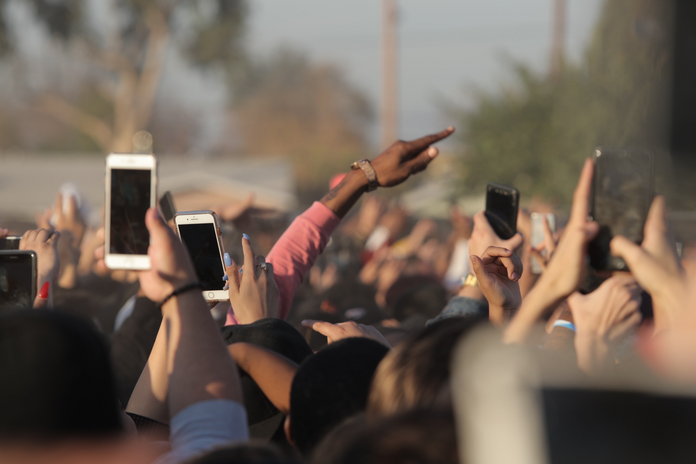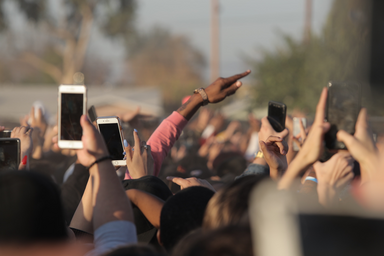Imagine our Earth as the size of a peanut. That is how I view it now, thanks to the social media phenomenon connecting even the darkest and dustiest of corners worldwide. The past ten years have seen unthinkable transformation because of social media sites like Facebook and Twitter. Old friends have been re connected, bullying has worsened, and regimes have fallen. I’ve been told repeatedly that this speed of interconnectedness is a good thing. That because of Twitter, Facebook, and smartphones, I am constantly up to date on the status of the world. And at first I bought it. My CNN app on my iPhone sends me push notifications by the boatload, I must be pretty cosmopolitan, right?
But recently I watched a video on how social media is in fact making us lonelier. And I started thinking that this complete opposition of the general thinking might not be the only one. What if instead of making us worldlier, social media was entrapping us in our own worlds? That things like Twitter and Facebook are changing our lives so drastically that at Notre Dame we no longer have to worry about being caught in the “Notre Dame bubble” but also our own personal “bubble.”
This huge boom of technology gives us an unmatched ability to put our attention wherever we want it to be. On Twitter, we pick whom to follow, and on Facebook we pick which “friends” can show up in our news feed. Technology developed to read our interests, so now we are shown things that are in our area and things that we probably already like.
We can filter out our news to topics that only interest us. We are literally only seeing things with have direct relevance to our own personal world. Yes maybe the New York Times or CNN sends us notifications or we follow breaking news on Twitter, but these outlets are like Instagram in that they only provide us with snapshots. Sure we know, “US prepared to move ahead with limited military strike on Syria after rejection of action by UK parliament” but could we tell you why the UK rejected? Could we tell you the reasoning behind the US decision? Could some of us even locate Syria on a map? We understand so little from those 18 words, and without any semblance of understanding it would be silly to state that we really had any worldly knowledge, that our “bubble” was burst.
And while this in itself is a problem it has only been exacerbated by the creation of the smartphone. Not only can we construct our own personal words, we can now take them with us EVERYWHERE. It’s like a virtual reality video game that just never ends. I can be sitting on the Metra train in Chicago, while scrolling through the tweets of all my friends from Notre Dame and for a second it’s like I’m there with them. I’m too busy to notice that I actually know the girl three seats up while I’m virtually interacting with other people in my “bubble.” I have friends who stare into the screens of their smart phones with an eerily similar fervor to the way Narcissus stared into a lake. Just think about the amount of times someone reading his or her phone has smacked into you or the amount of times you’ve smacked into someone. We no longer are required to interact with the present world because we can escape to the tweets, pictures, and videos of others that are one lock screen away.
But here’s the thing about people who live in a bubble, they don’t get to breath fresh air, they can’t feel the warmth of the suns rays smooth over their skin, or the slight tingle that remains after someone’s skin brushes against your own. And without experiencing those things how can one say they truly lived? So put down your phone, pick up a newspaper and read the ENTIRE article, and strike up a conversation with someone waiting near you outside the dining hall instead of viewing the world through, albeit a very high def, screen.

